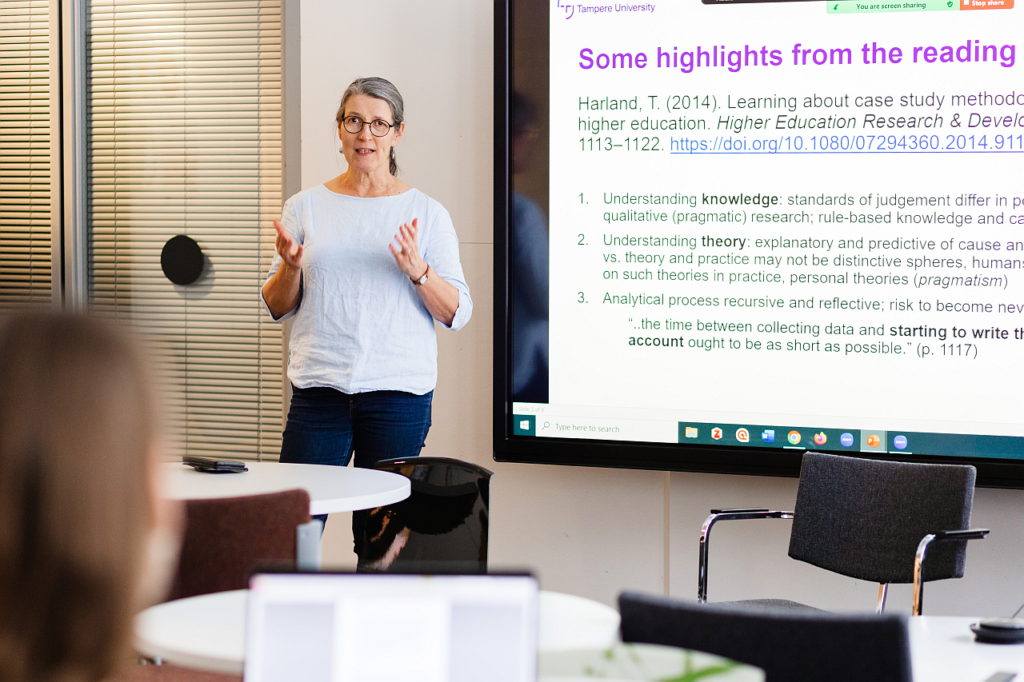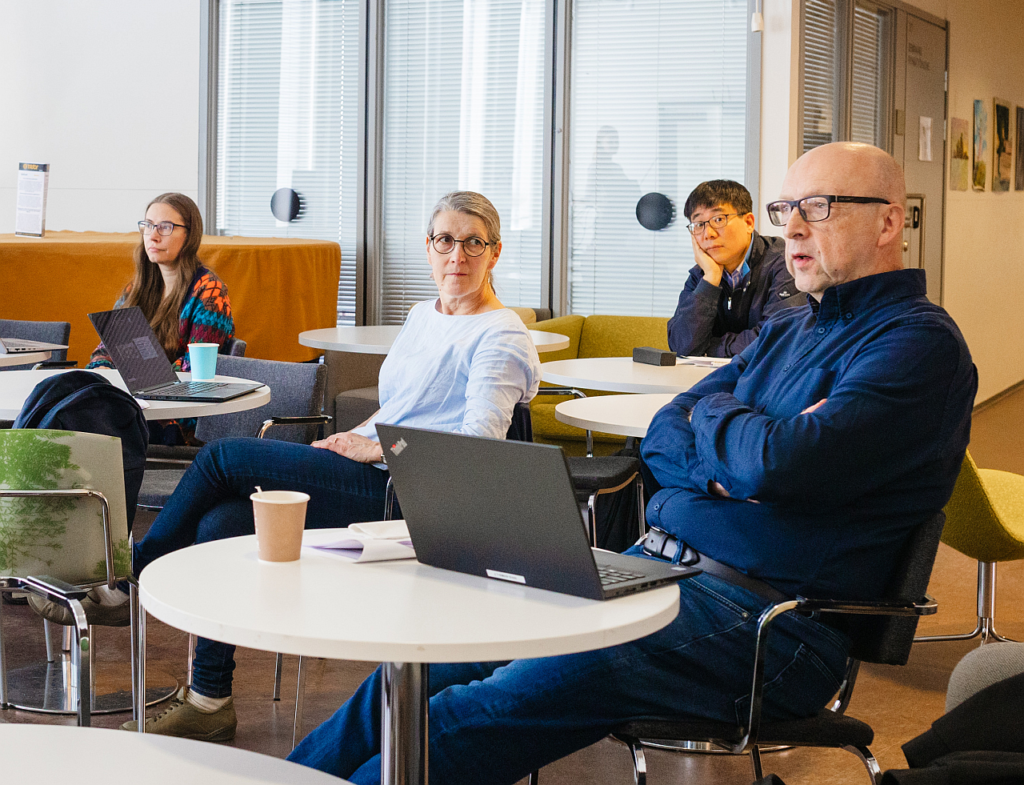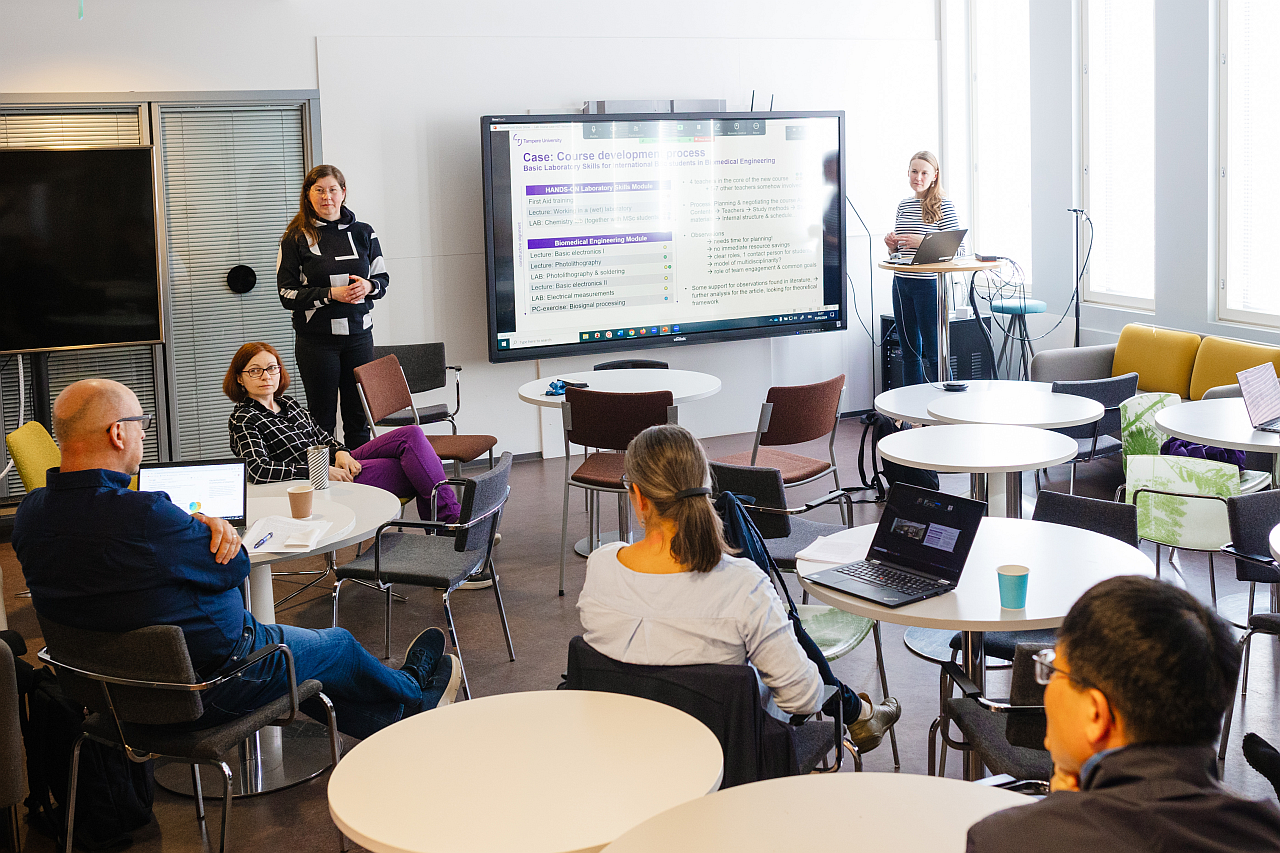Guided by the idea that “Pedagogical expertise is the expertise of the community”, the HET Network was initiated as an interdisciplinary forum for exchanging ideas on university teaching and academic work. This informal network welcomes all TUNI staff members and doctoral researchers interested in conducting pedagogical research which usually relates to their immediate teaching communities. The goal is to facilitate research-based approach to pedagogical development in higher education. In practice, network members meet regularly (approximately twice per semester) and discuss theoretical and methodological perspectives in designing pedagogical research, and relevant publication channels for different academic disciplines.
The network had four meetings so far with following themes: Introduction to higher education pedagogical research (and establishing of the network), Connections between disciplinary research and pedagogical research, Methodologies for pedagogical research in higher education, and Case study as a qualitative design in higher education pedagogical research. The meetings usually start with the coordinators giving a brief introduction to the theme and often based on some scholarly article sent out as pre-reading. The introduction is followed by small group and general discussions, and sometimes by participants’ presentations of their ongoing pedagogical research projects. There are around 40 TUNI members subscribed to the network’s online communication channel, and there were between 5 and 15 participants in the past meetings.

Pedagogical research conversations during the HET Network meetings
I asked the HET supervisory team that coordinates the network to reflect on the benefits of the discussions that this forum enables.
Jyri Lindén, Johanna Annala, and Vesa Korhonen: How do you experience the network discussions? Could you reflect on this research network from the perspective of pedagogical expertise and academic development in higher education institutions?
Jyri: One of the goals of the HET Network is to encourage teachers from different disciplines to develop teaching and learning conditions in their own field through low-threshold pedagogical research. In our meetings, we have had interesting discussions about how the research practices and paradigms of a discipline often also guide pedagogical research. These discussions have helped to examine pedagogical research broadly and across disciplinary boundaries. Additionally, the discussions have helped to identify essential research topics in different disciplines.
Johanna: Some years ago, I had a conversation with faculty members who completed all university pedagogical courses we offer thus obtaining a full teacher qualification of 60 credits. They were pondering, what could be a next step and is there any place to continue this type of collegial sharing and discussion they had experienced in multi-disciplinary groups during the pedagogical studies. This motivated us to initiate this network. It has been interesting to realise that academics use this network not only afterwards, but also to prepare for the final stages of this teacher qualification. Doing pedagogical research is a requirement there and the network seems to be useful to advance that project. Therefore, I would say that sharing and discussing pedagogical research on pedagogical practice contributes the continuous professional development of faculty members.
Vesa: The development of teaching requires more attention and support in the current university environment, where research and securing funding for research projects are more prominently highlighted. It is good that university pedagogical training has established its position in universities, and we have also here a Teaching and Learning Centre to aid in the sharing of pedagogical knowledge. However, the promotion of own pedagogical research has largely depended on the personal interest of individual enthusiasts. In addition to increasing university pedagogical training and awareness, we also need the sharing of knowledge to support pedagogical research and development work. I see that this HET Network offers a good opportunity for this purpose. I believe that the network can provide support and give ideas for one’s own pedagogical research that is under development or is already in progress.

As highlighted in these reflections, the HET network enables cross-disciplinary conversations about the university teaching environment and recognition of teachers’ development work. Through this network, TUNI teachers get familiarised with current pedagogical research, and more importantly, get support for conducting their own pedagogical research. Engaging in pedagogical research expands the expertise of the individual teacher as well as the expertise of their teaching communities.
We invite all TUNI staff members and doctoral researchers interested in pedagogical research to join! More information about the network is available on the webpage https://research.tuni.fi/het/het-network/
Text: Vesna Holubek
Photos: Tatiana Skitovich

